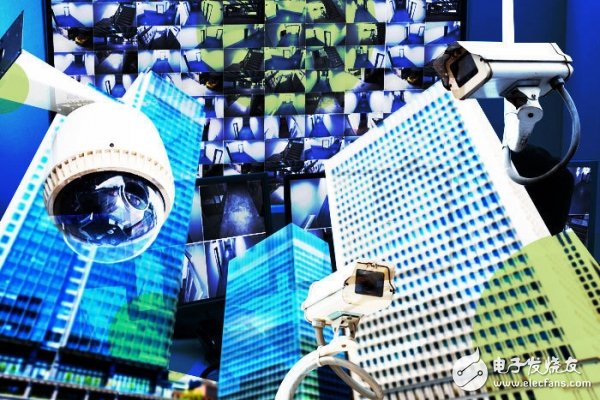For decades, video surveillance has been used to detect and stop crimes in homes, businesses, and public places. But when you look back on these years, you will find that video surveillance has been amazingly developed. Not only is the quality of the video better now, but the software behind it is even more so.

Evolution of video surveillance technology
As you review the video surveillance industry and all the emerging advanced technologies that have entered the market, you will be overwhelmed by the development of these years.
Think about it before you have to call a lot of professionals to build a security system in your home - through the wall, cloth a bunch of wires - now ordinary homeowners do not need much resources to install their own smart camera.
In the past, companies had to have a dedicated team to monitor security cameras around the clock, and most of the monitoring is now automated, and security personnel are notified when there are suspicious behaviors.
The progress made in video surveillance technology over the past few years has been huge, but we have only seen the surface. There are other developments that have brought the video surveillance industry to a completely different level.
The role of artificial intelligence in video surveillance
Artificial intelligence is affecting all aspects of people's lives and work. The security industry is getting more and more attention, and we are beginning to see what the world of a "smart" camera looks like.
Often, surveillance cameras provide real-time monitoring for citizens, businesses, and law enforcement agencies, or look back at certain things that have already happened. An advanced security camera that incorporates AI technology allows users to monitor the situation in real time and identify problems before they occur.
Data scientist Dr. Mahesh Saptharishi said: "A surveillance system with video analytics can analyze video content and detect anomalous activity that could pose a threat. Basically, video analytics can help security software 'learn' what is normal, so it It is possible to detect anomalies and potential hazards that an individual may ignore."
This is one of the key drivers for combining AI with video surveillance. The idea behind this is that advanced software can improve human judgment and provide more accurate and safer monitoring. But this does not mean replacing human surveillance, but making the process more detailed and more personal.
Humans have always wanted to integrate AI with video surveillance, but before this was technically impossible (from a hardware perspective), this situation has changed.
"The new frontiers of AI and machine learning can deploy these technologies in real-world products. This means that power demand will be low enough to allow it to be embedded in the camera itself," said Remi El, vice president of a technology company. -Ouazzane said the company is developing a new processing technology that chooses to monitor cameras.
According to reports, this new processing technology will enable new functions such as population density monitoring, facial recognition, stereo vision, illegal parking vehicle detection and behavior analysis.
The gratification analysis is being researched by many technology companies whose idea is that advanced security cameras can identify precursors related to crime and other public safety issues.
The West Japan Passenger Railway Company is a good example. After discovering that 60% of people in Japan who were hit by trains were drunk, the company installed 46 security cameras to automatically search for and detect signs of drunkenness. The AI ​​system can detect people who are snoring, tripping, falling or standing still for a long time on the bench, and inform the staff to check if they are in danger.
Whenever the topic of video surveillance is mentioned, it is always accompanied by public concerns about privacy. No one wants to be constantly monitored. Although you may be a little uncomfortable, the people behind these technologies ensure that the system knows when to stop collecting information and when to turn away. For example, a camera installed in your home will be turned off when certain "intimate" situations occur.
"I don't want to give you too many examples, because I may be in trouble as a Frenchman," El-Ouazzane joked.
Change is happening
The integration of AI technology in advanced camera systems is inevitable and exciting. While enhanced monitoring is always accompanied by potential risks, the potential advantages clearly outweigh the disadvantages. It may take a few years for us to see large-scale adoption, but we are expecting a large wave of artificial intelligence-oriented applications to emerge in the future.
Aquarium Filters,Aquarium Filter,Filter For Aquarium,Aquarium External Filter
Sensen Group Co., Ltd.  , https://www.sunsunglobal.com